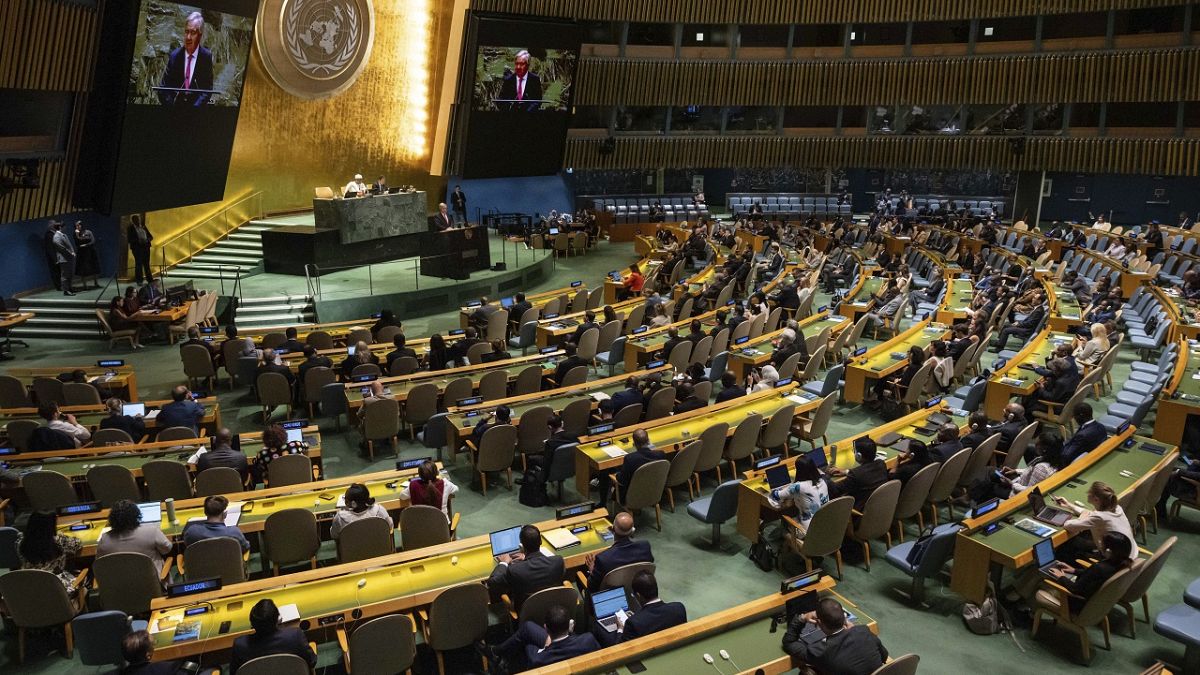The UN General Assembly has overwhelmingly supported a Palestinian-drafted resolution on Wednesday, urging Israel to end its “unlawful presence” in Gaza and the occupied West Bank within a year. The resolution, which was passed by a 124-14 vote with 43 abstentions, is not legally binding but holds symbolic significance in the international community. The resolution demands the withdrawal of all Israeli forces and settlers from the occupied territories without delay, and calls on countries to impose sanctions on those supporting Israel’s presence in the regions.
The Palestinian UN ambassador, Riyad Mansour, hailed the vote as a turning point in their struggle for freedom and justice. He emphasized the need for Israel’s occupation to end as soon as possible and for the Palestinian people’s right to self-determination to be realized. However, Israel’s UN Ambassador, Danny Danon, criticized the decision as supporting what he referred to as the Palestinian Authority’s “diplomatic terrorism.” Despite the opposition from the United States, Israel’s closest ally, the resolution is seen as a push towards ending Israel’s presence in the Palestinian territories.
The resolution is based on an advisory opinion by the International Court of Justice, which deemed Israel’s presence in the Palestinian territories as unlawful and in need of ending. It calls for reparations to be paid to Palestinians for the damages caused by the occupation, as well as for measures to prevent trade or investments that support Israel’s presence in the territories. The General Assembly has asked UN Secretary-General Antonio Guterres to report on the implementation of the resolution within three months, including actions taken by Israel, other states, and international organizations.
The passing of the resolution reflects a global call for justice in the Israeli-Palestinian conflict. Human Rights Watch and Amnesty International have urged Israel to abide by the resolution and end its occupation of the Palestinian territories. Despite the likelihood that Israel may not comply with the resolution, Mansour indicated that the Palestinians would continue to push for stronger actions in the future. The resolution highlights the international community’s stance on the issue, emphasizing the need for a just solution to the ongoing conflict in the region.
In response to the resolution, Israel’s UN Ambassador criticized the decision as supporting what he referred to as the Palestinian Authority’s “diplomatic terrorism.” Despite the opposition from the United States, Israel’s closest ally, the resolution is seen as a push towards ending Israel’s presence in the Palestinian territories. The General Assembly has called on countries to impose sanctions on those maintaining Israel’s presence in the regions, further emphasizing the need for justice and self-determination for the Palestinian people.
Overall, the UN General Assembly’s support for the resolution represents a significant step in the international community’s efforts towards ending Israel’s occupation of the Palestinian territories. The resolution, although not legally binding, carries symbolic weight and reflects the global call for justice and self-determination for the Palestinian people. Moving forward, it remains to be seen how Israel and other member states will respond to the resolution’s demands and whether further actions will be taken to ensure the realization of a just solution to the Israeli-Palestinian conflict.











